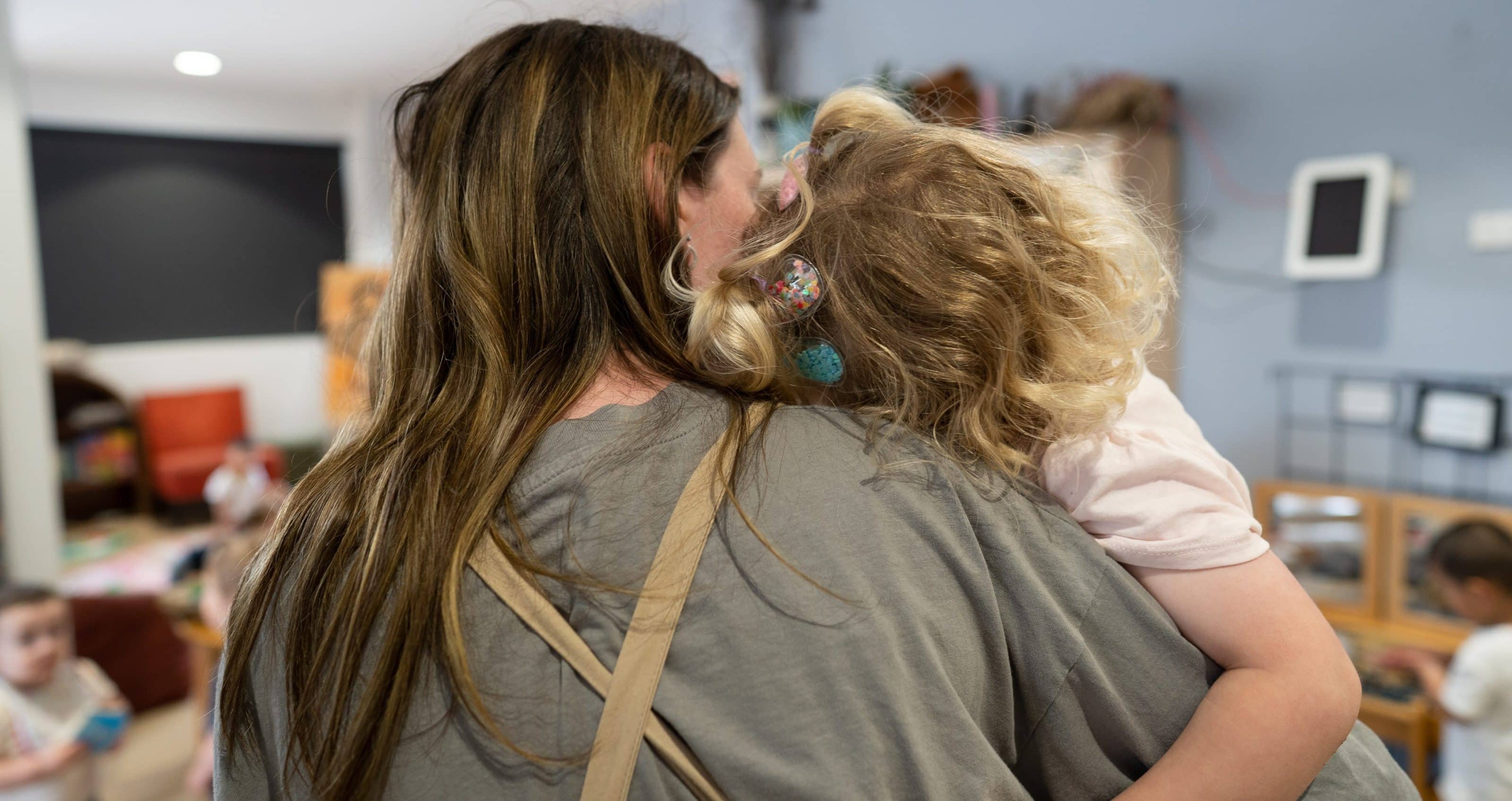Why is My Toddler Hitting Others?
2 February 2023

Is your toddler going through a hitting phase? Read on for the science behind why this is normal – and how to deal with it.
Watching your toddler hitting, pushing or even biting their peers can be embarrassing and stressful for first-time and veteran parents alike. What follows is often guilt, anger and that nagging imposter syndrome – am I a bad parent?
The short answer is no. You’re not a bad parent if you catch your toddler hitting or pushing others. In fact, it’s a common phase in early childhood.
In this post, we look at the science behind why your toddler may be hitting others, and some ways to use this as a learning opportunity to teach boundaries, social skills and emotional regulation.
1. Empathy
The development of empathy is a major factor in toddler hitting. In short, empathy is the capacity to understand the feelings of others and to put yourself into their shoes.
However, a common misconception is that empathy is genetic. This is untrue. Rather, empathy is a skill that must be taught, practised and developed over time.
Studies show that toddlers begin developing genuine empathy at around two years old. This can take many forms after a child sees another in distress, including:
- Offering to share their food.
- Giving them a toy or comfort item.
- Hugging or showing affection.
- Reacting in distress themselves.
However, developing empathy sometimes causes toddlers to lash out. For example, if another child has a sore stomach and is showing clear signs of pain (facial expressions, crying, holding their stomach), a toddler may actually hit the child in the stomach. Yet, this isn’t an act of malice or cruelty. Rather, the toddler doesn’t understand how to approach the situation that’s made them feel uncomfortable, resulting in ‘aggression’ towards the problem area.
2. Sensory Exploration
Children love to touch, see and smell the world around them. This is a result of their developing neurochemistry, as they begin to create a more three-dimensional understanding of their environment.
However, they still lack proper social skills and spatial awareness. Therefore, children may ‘squeeze, pinch, push, and kick other children’ to experience their surroundings and participate in social interactions in the only way they know how.

3. Power
It’s important to understand that children aren’t pushing out of cruelty. Dr. Gwen Dewar put it best, suggesting this sort of behaviour reflects a lack of impulse control, rather than malice.
Likewise, children are essentially powerless. Beyond being physically small, they lack the financial, intellectual and social means to exert any real power over the world around them, and this continues well into childhood and adolescence. Therefore, when toddlers exert power over another and get a real reaction, it’s mind-blowing for them.
Dr Laura Markham outlines how this feeling of power is key to why your child is acting out:
They are learning how to have an impact on the world, which means they are learning how to use power. So, they experiment with physical force, to see what happens. Add to this a child who is physically larger than his peers, and you get a kid who is likely to experiment with using physical force against others.
4. Managing Toddler Hitting
Firstly, try not to punish them. This can be difficult as parents tend to react with anger or shame if their child hits or pushes another, which is understandable. Likewise, we tend to view toddler hitting from our adult point-of-view, where such acts are unthinkable in everyday social situations.
However, this intense reaction is likely to have the opposite effect, according to Dr. Markham:
Punishing him won’t help the situation because it just teaches him that bigger people can use force on smaller people, which is exactly what you’re trying to show him is not ok.
Rather, it’s more effective to have a calm – but firm – talk with your child. Dr. Markham recommends removing your child from the situation immediately and taking the opportunity to explain why hitting others is never okay. Additionally, she suggests that preparing children in advance can be helpful, as overstimulation and unpredictability are common causes for overstepping boundaries.
If you get mad, you tell me, and I will help you, ok? If you forget and push, we will need to stop having fun and leave right away. So, let’s remember to keep our hands on our own bodies and have fun with the other boys, ok?
Lastly, demonstrating empathy for the hurt child is a subtle way of implying disapproval of your child’s actions.
Oh no, poor Charlie is crying. I think that really upset him.

5. Be Patient
Overall, it’s important to understand that this is a phase that toddlers outgrow as their empathy and social awareness develop. Yet, it can still be a particularly challenging time for parents due to complicated emotions and social embarrassment (nobody wants to be that parent with the pushy child).
Rest assured – it will pass. You’re not a bad parent and your child isn’t a monster. They’re just learning how to navigate a world filled with social cues, interactions, conventions and unspoken rules that even adults sometimes forget.
They’ll learn and become better for it. Just remember to stay calm, don’t overthink it and give yourself some credit – you’re doing great!
🍃 To tour one of our beautiful Centres, please click here. Otherwise, check out our website to register your interest at Explorers Early Learning today!